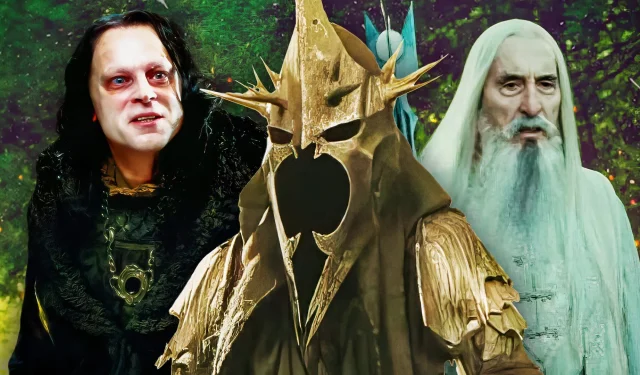
The Lord of the Rings is renowned for its intricate narratives and captivating prophecies. Among these enigmatic predictions is one made by the Witch-king of Angmar concerning Saruman. As one of Sauron’s most formidable servants, the Witch-king commands the fearsome Ringwraiths, indicating a depth of knowledge that might not be immediately appreciated. Both the Witch-king and Saruman, along with Gríma Wormtongue, are pivotal characters in both Peter Jackson’s cinematic trilogy and J.R.R. Tolkien’s literary masterpiece, yet the Witch-king’s fascinating foretelling regarding Wormtongue does not surface in either adaptation.
While Saruman is often characterized as one of the prime villains in The Lord of the Rings, Gríma Wormtongue’s portrayal evokes complex feelings of sympathy and regret. This intricate balance of guilt and innocence adds a rich layer to the moral tapestry within the saga, compelling audiences to care deeply about the varied destinies of its characters. This context makes the Witch-king’s remarkable moment in Unfinished Tales especially intriguing.
Witch-King’s Prophetic Insight on Wormtongue
The Witch-King’s Awareness of Wormtongue’s Betrayal
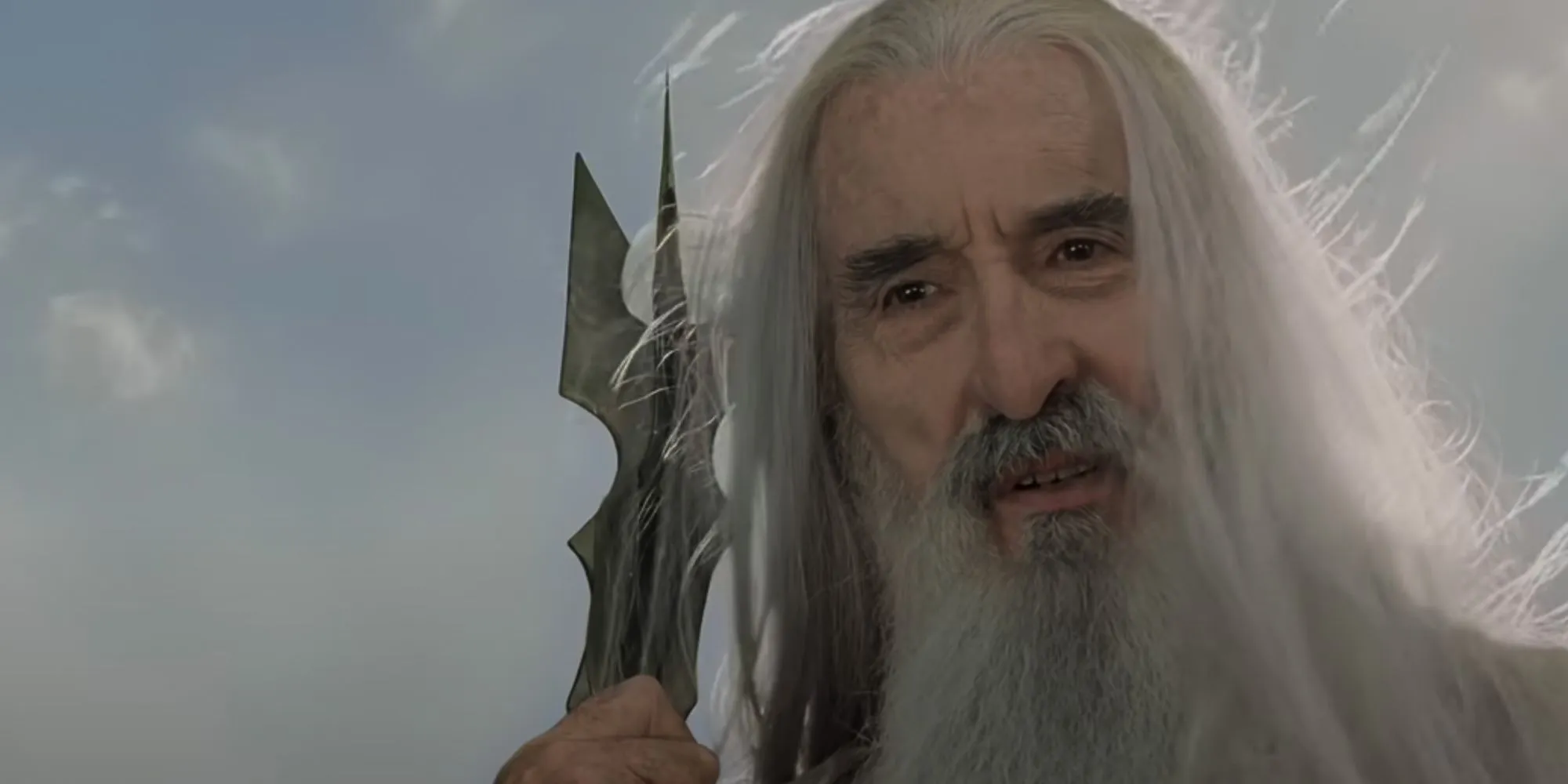
In his posthumous publication, Unfinished Tales, Tolkien elaborates on the Witch-king’s insight into Wormtongue’s impending treachery against Saruman, which unfolds around the time depicted in The Lord of the Rings: The Two Towers. This collection, released in 1980, comprises various narratives from different stages of Tolkien’s career, with one chapter, “The Hunt for the Ring,” capturing pivotal moments as Gandalf journeys from Edoras.
During this time, the Witch-king sensed Wormtongue’s malevolence and potential to harm Saruman, which led him to spare Wormtongue’s life. While it might seem that such a conclusion required exceptional foresight, the Witch-king’s actions could be interpreted not merely as prophetic vision but an acute understanding of character dynamics. It’s worth noting that true prophetic visions in Tolkien’s universe are conveyed by Eru Ilúvatar, Middle-earth’s creator, and the Witch-king may not have held such a position of insight.
The Witch-King’s Motivation for Saruman’s Demise
Unwavering Loyalty to Sauron
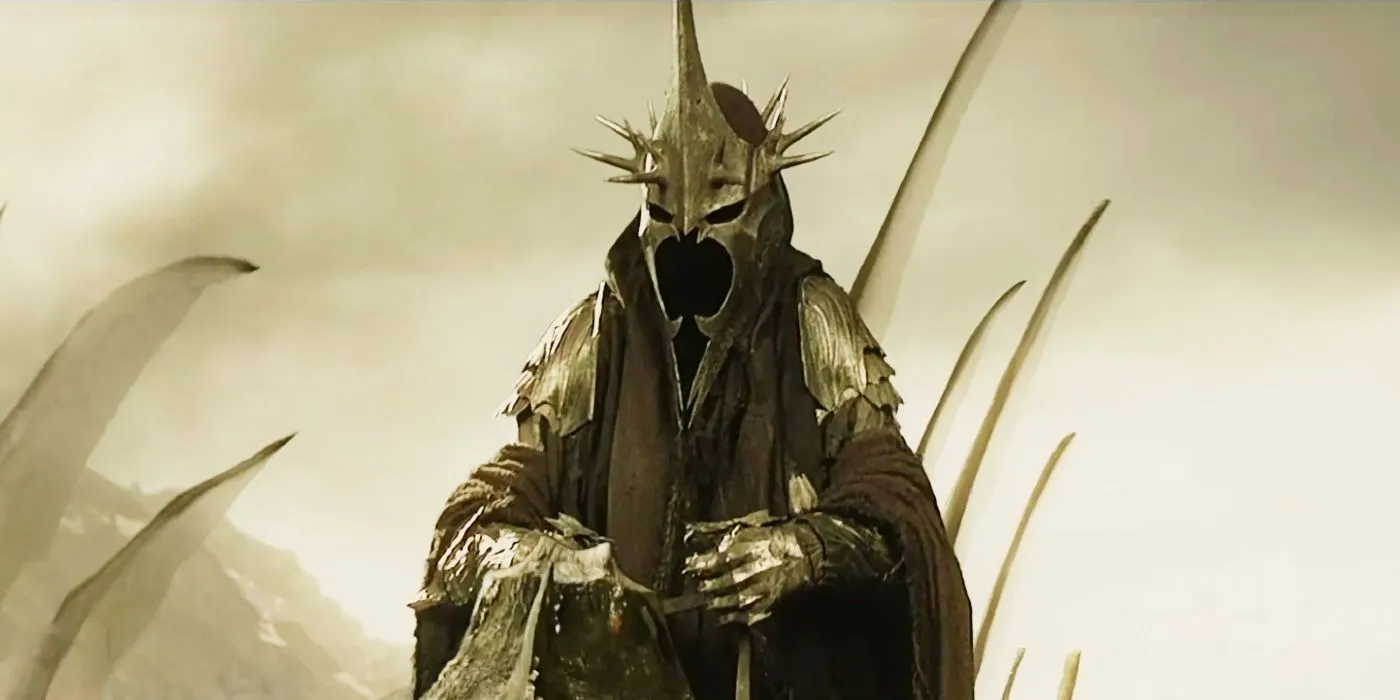
Initially, Saruman served Sauron under the guise of loyalty, yet he ultimately plotted against him. This betrayal did not go unnoticed; Sauron became aware of Saruman’s machinations while he sought greater power. As one of the five Istari sent by the Valar to combat Sauron, Saruman’s subsequent duplicity placed him in a precarious position. Upon recognizing this betrayal, Sauron made sure the Ringwraiths, including the Witch-king, knew of Saruman’s treachery. Thus, the Witch-king, bound to Sauron through the One Ring’s dominion, sought to see Saruman eliminated.
| Tolkienian Age | Event Marking The Start | Years | Total Length In Solar Years |
|---|---|---|---|
| Before time | Indeterminate | Indeterminate | Indeterminate |
| Days before Days | Ainur entered Eä | 1 – 3,500 Valian Years | 33,537 |
| Pre-First Age Years of the Trees (Y.T.) | Yavanna created the Two Trees | Y.T. 1 – 1050 | 10,061 |
| First Age (F.A.) | Elves awoke in Cuiviénen | Y.T. 1050 – Y.T. 1500, F.A. 1 – 590 | 4,902 |
| Second Age (S.A.) | War of Wrath ended | S.A. 1 – 3441 | 3,441 |
| Third Age (T.A.) | Last Alliance defeated Sauron | T.A. 1 – 3021 | 3,021 |
| Fourth Age (Fo.A) | Elven-rings left Middle-earth | Fo.A 1 – unknown | Unknown |
Jackson’s film adaptations overlooked much of the subtlety and complex plotting inherent in Tolkien’s work. Unfinished Tales reveals insights into the duplicity within Sauron’s ranks during the War of the Ring. Specifically, “The Hunt for the Ring”describes how Saruman was secretly forging his own path to power while simultaneously undermining Sauron’s authority. Aware of Saruman’s potential betrayal, Sauron chose to remain silent initially, aiming to control him. This left Saruman vulnerable, ultimately leading to Wormtongue’s fateful intervention before Sauron’s forces acted.
The Fatal Betrayal: Wormtongue’s Role in Saruman’s Death
The Toxic Dynamic Between Wormtongue and Saruman
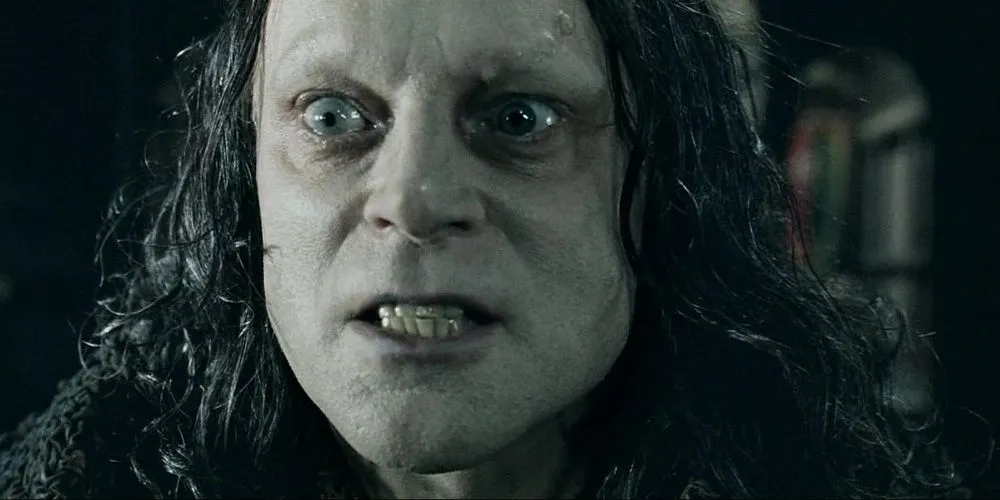
Throughout the narrative, Gríma Wormtongue exhibits loyalty to Saruman, yet his eventual act of murder underscores the toxicity of their relationship. The depiction of Saruman’s death varies between the book and the film adaptations, but in both, it is Wormtongue who delivers the fatal blow. This outcome speaks volumes about the appalling conditions Saruman imposed upon his followers, reflecting a darker side of leadership.
In Tolkien’s original narrative, Saruman often ridicules Wormtongue’s loyalty, which reveals a bizarre, manipulative leadership style. Despite this, Wormtongue remained trapped within a cycle of dependency, bound by the need for a sense of belonging in the dismal environment of Rohan’s court. Saruman’s tyrannical approach ultimately led to his tragic demise, as Wormtongue’s growing resentment culminated in a betrayal that is both shocking and expected, a perfect example of the karmic justice threaded throughout Middle-earth.
The Omission of Saruman’s Death in the Theatrical Cut of Return of the King
The Mysterious Absence of Saruman’s Death Scene
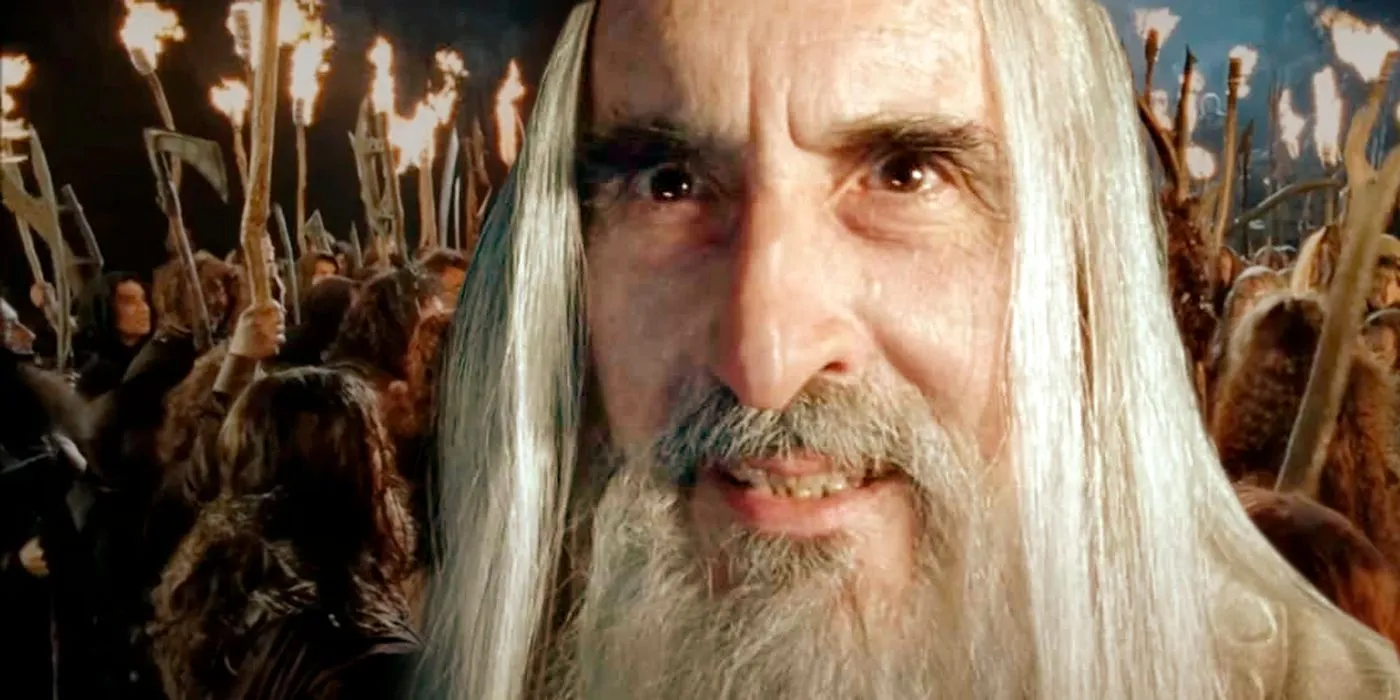
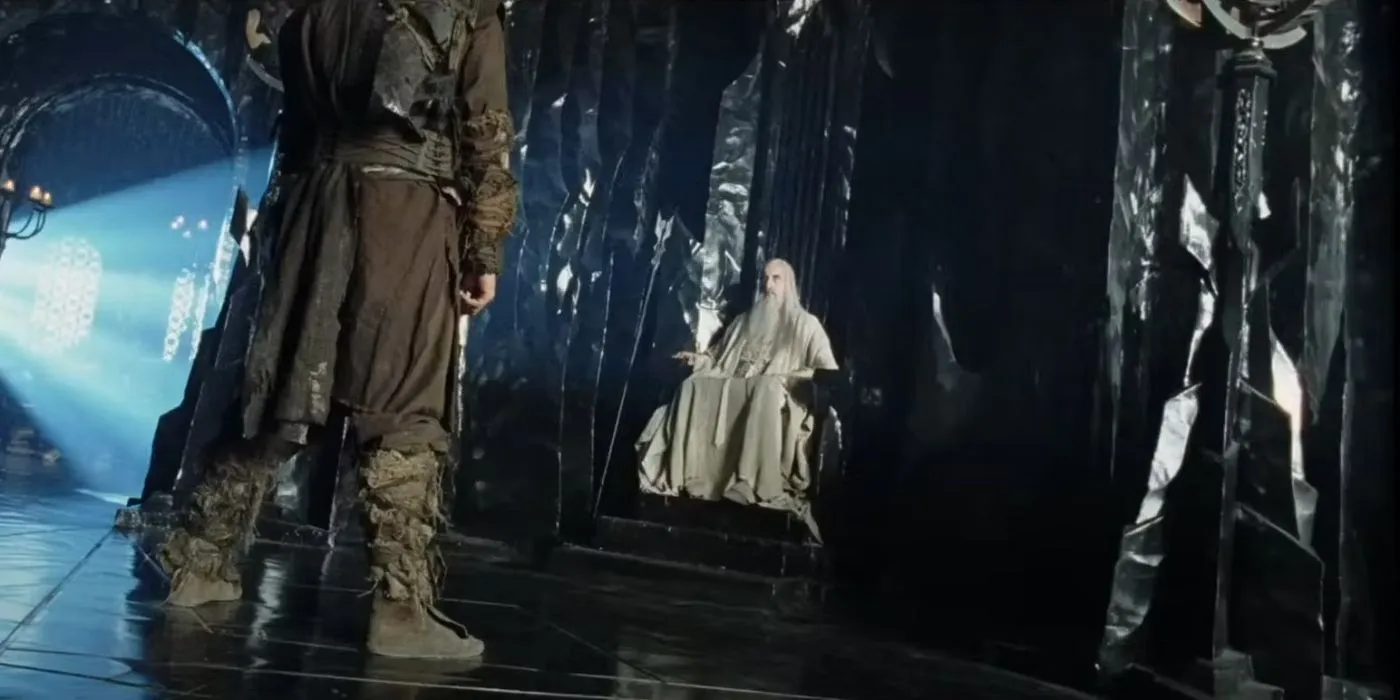
The extended edition of The Lord of the Rings: The Return of the King incorporated the scene of Saruman’s death, leaving many fans confounded as to why it was excluded from earlier cuts. Director Peter Jackson had to rework the timeline significantly, leading to the realization that this pivotal moment would have fit more appropriately within The Two Towers, despite it being placed towards the conclusion of the book. Although Jackson had initially intended to include this scene, it was ultimately edited out to streamline the film’s length, leaving actor Christopher Lee voicing his discontent.
In both the literary and film versions, Wormtongue is the one who fatally stabs Saruman. However, the cinematic adaptation adds additional drama as Saruman’s body falls from Orthanc, where he meets a grisly end upon a spiked wheel, contributing to one of the most memorable moments in The Lord of the Rings. The decision to include this grim conclusion in the extended edition rectified earlier omissions and offered closure to a character whose fate was heavily debated among fans.




Leave a Reply